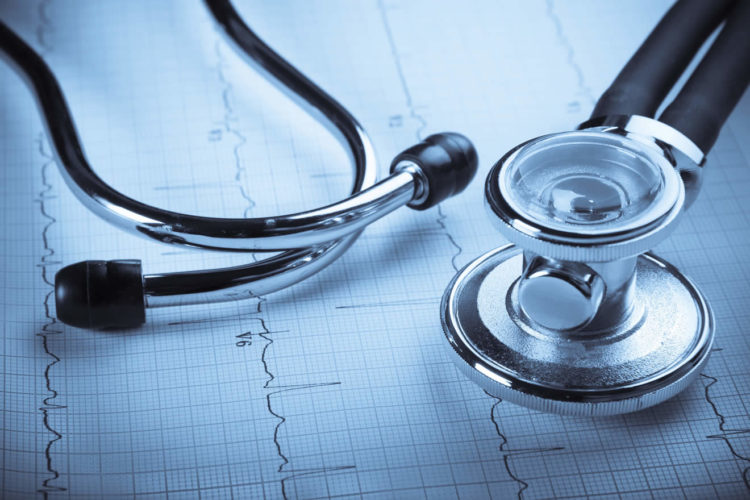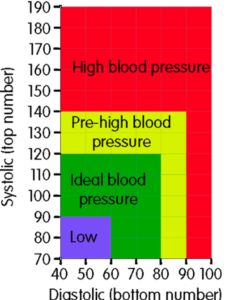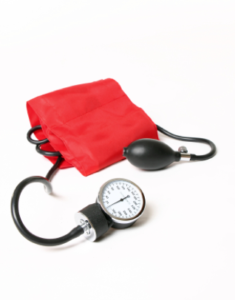What is high blood pressure and why does it matter?
22 December 2016 / 8:00 am

Each time the heart beats, it sends blood around the body, creating a pressure wavefront that moves through our blood vessels. This change in pressure within the arteries generates our blood pressure and is measured in millimetres of mercury (mmHg). The top number is called the systolic pressure and is the pressure recorded when the heart contracts. The bottom number is the diastolic pressure and is recorded when the heat relaxes and refills with blood. A normal, or ideal blood pressure is 120/80 mmHg. Recordings above 140 mmHg systolic (top number) or above 90 mmHg diastolic (bottom number) can mean that blood pressure is high and needs treating. The chart below gives an idea of when blood pressure is considered low, ideal or high:

Around one in four of the adult population will develop high blood pressure that needs treating. This is usually caused by age related thickening or stiffening of the arteries but a small percentage of people will have a different cause of high blood pressure. This is usually as a consequence of kidney problems, structural heart or endocrine abnormalities. Some families can have a tendency to high blood pressure. People are more likely to get high blood pressure if they are overweight, do not exercise enough, take too much salt in their diet, drink too much alcohol or who take certain drugs such as steroids. Younger people with high blood pressure should have a thorough check with their GP or local specialist to exclude other reversible causes of high blood pressure.
Most people with high blood pressure have no symptoms but as the heart has to contract against higher pressures the heart’s muscle can thicken up and changes can start to occur within the body’s organs and arteries. This can increase the risk of heart failure, heart rhythm problems, heart attacks, stroke and kidney failure.

Blood pressure can be lowered by losing weight, reducing salt intake, regular exercise as well as by medication. Simple lifestyle choices and changes can often have a big difference. There are many different types of medications to take for high blood pressure and your doctor will choose the type best suited to you as an individual. Most medication is taken not to make you feel better, but to protect against heart problems in later life. I recommend that all patients with high blood pressure use a home blood pressure monitor to get to know what their pressure is and link the recordings to a modern smartphone device or PC. These data can then be simply shared or stored and shown to your doctor during consultations.
So, if you haven’t had a blood pressure check recently then please see you local health professional and arrange one. It might one day save you life.
More Posts
7 May 2025
A digital health diary revisited
16 March 2024
Developing a new strategy for healthy Islanders
4 February 2024
A digital health diary for Jersey
27 December 2022
Utilising artificial intelligence in cardiology practice
12 June 2022
Under the bonnet – time for your heart’s MOT
12 March 2022
What is heart valve disease and what does that mean for me?
12 January 2022
Preventing heart disease using augmented digital health intelligence
1 October 2021
How heart health has been impacted by COVID-19
1 August 2021
The importance of the rhythm of your heart
21 June 2020
What is atrial fibrillation?
8 April 2020
Coronary heart disease and risk of heart attacks
11 January 2020
The Era of Immersive Health Technology
22 September 2019
The heart and stress
18 August 2019
Screening for Atrial Fibrillation and the Role of Digital Health Technologies
20 November 2018
Ectopic beats – how many count?
28 July 2018
How can immersive VR and AR technologies improve your physical and mental health?